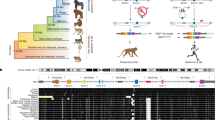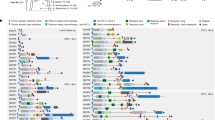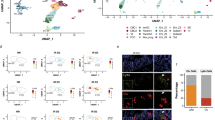Abstract
The expression of Insulin-like Growth Factor 2 (IGF-2) and H19, two genes located on human chromosome 11p15 and provided with cell growth modulating activity, is regulated by parental imprinting, in that the activity of their alleles is dependent on the parental origin. Parental bias in the genetic alterations of chromosome 11p15 observed in several pediatric cancers suggests the involvement of imprinted genes in tumor development. We have previously reported that the number of functional IGF-2 alleles is frequently increased in rhabdomyosarcoma (RMS), as a consequence of either relaxation of imprinting (LOI) or gene duplication. Here we show that the expression of the H19 gene is significantly suppressed with respect to normal muscle tissue in 13 out of 15 rhabdomyosarcomas with embryonal histology (ERMS) and in three out of 11 rhabdomyosarcomas classified as alveolar subtype (ARMS). Since a growth-inhibitory activity has been found associated with the H19 gene, the extinction of its expression can contribute to RMS development. Parental imprinting of the H19 gene was found conserved in all informative RMSs, including those whose IGF-2 imprinting was relaxed, indicating that LOI is a gene-specific event. Seven ERMSs and one ARMS displaying low H19 RNA levels showed an underrepresentation of the expressed allele in their genotype. This result is consistent with the paternal imprinting of the H19 gene and with the preferential loss of the maternal 11p15 alleles in these neoplasms. Low H19 expression was also found in four out of eight RMSs retaining the heterozygosity at 11p15, but showing IGF-2 LOI. These findings suggest that the genetic and epigenetic alterations affecting chromosome 11p15 in a high number of RMSs cause deregulation of more than one imprinted gene, possibly affecting tumor growth, including the extinction of H19 expression and an increase in the number of active IGF-2 alleles.
This is a preview of subscription content, access via your institution
Access options
Subscribe to this journal
Receive 50 print issues and online access
$259.00 per year
only $5.18 per issue
Buy this article
- Purchase on Springer Link
- Instant access to full article PDF
Prices may be subject to local taxes which are calculated during checkout
Similar content being viewed by others
Author information
Authors and Affiliations
Rights and permissions
About this article
Cite this article
Casola, S., Pedone, P., Cavazzana, A. et al. Expression and parental imprinting of the H19 gene in human rhabdomyosarcoma. Oncogene 14, 1503–1510 (1997). https://doi.org/10.1038/sj.onc.1200956
Received:
Revised:
Accepted:
Issue Date:
DOI: https://doi.org/10.1038/sj.onc.1200956
Keywords
This article is cited by
-
H19 promotes pancreatic cancer metastasis by derepressing let-7’s suppression on its target HMGA2-mediated EMT
Tumor Biology (2014)
-
Soft tissue sarcoma subtypes exhibit distinct patterns of acquired uniparental disomy
BMC Medical Genomics (2012)
-
Molecular Genetics in the Diagnosis and Prognosis of Solid Pediatric Tumors
Pediatric and Developmental Pathology (1998)



